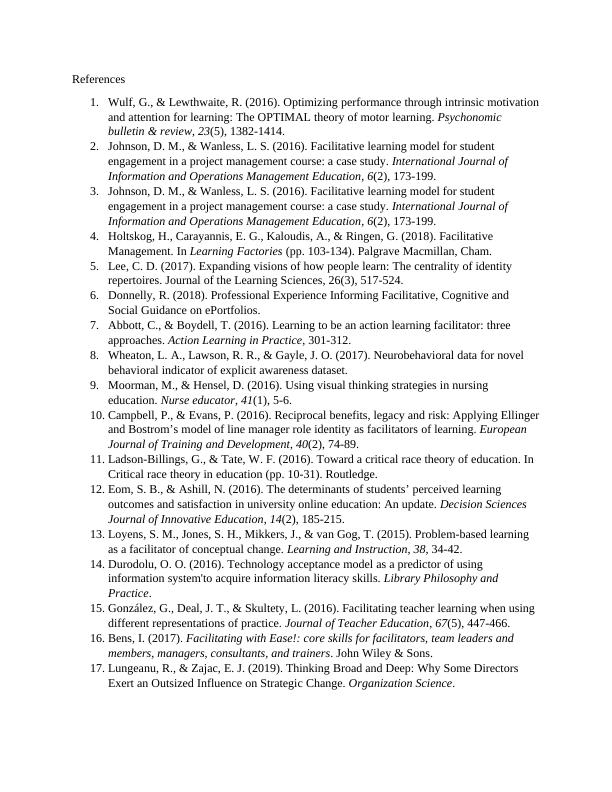Facilitative Learning Models for Student Engagement in Project Management Course
Contributions and division of topics among group members for a wiki assignment on the Information Processing Model Theory.
2 Pages739 Words271 Views
Added on 2022-11-26
About This Document
This article discusses the facilitative learning model for student engagement in a project management course. It presents a case study and explores the impact of this model on student engagement and learning outcomes.
Facilitative Learning Models for Student Engagement in Project Management Course
Contributions and division of topics among group members for a wiki assignment on the Information Processing Model Theory.
Added on 2022-11-26
ShareRelated Documents
End of preview
Want to access all the pages? Upload your documents or become a member.
References for Leadership, Management, and Teamwork
|6
|1401
|366
Employee Engagement and Organizational Commitment: Evidence from Jordan
|2
|781
|81
Performance Management System : Assignment
|6
|1800
|144
Globalization and Human Resource Management - Assignment
|6
|1782
|186
Introduction to Learning Mathematics - Desklib
|17
|551
|99
Effective Business Communication: Intercultural Challenges and Recommendations
|18
|1039
|125

